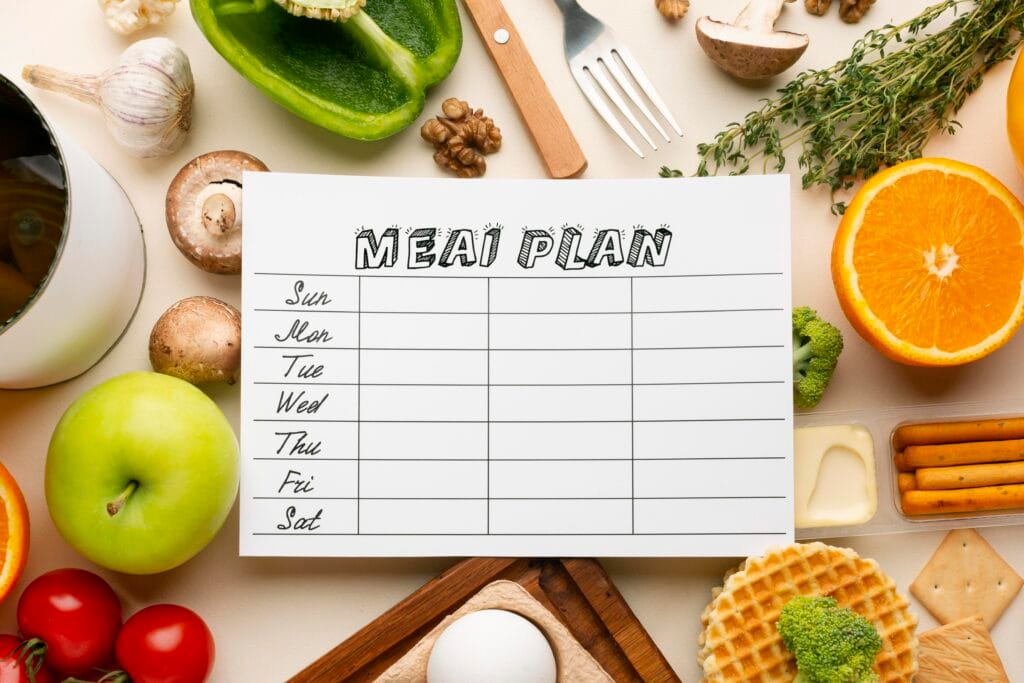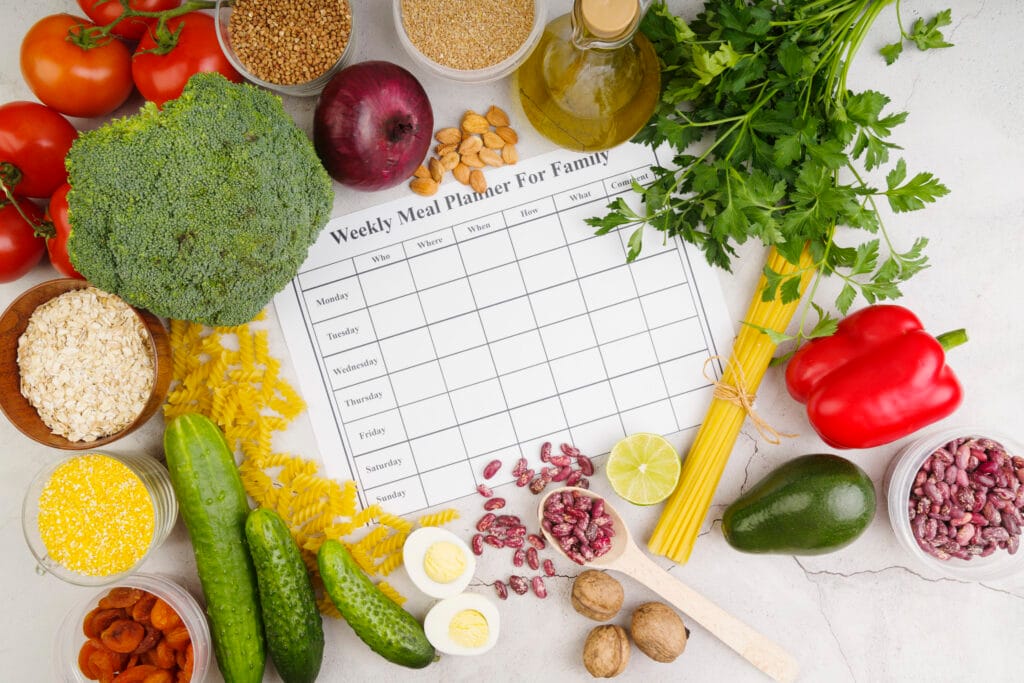Effective 7 Day GERD Diet Plan to Ease Acid Reflux
7 Day GERD Diet Plan
Living with gastroesophageal reflux disease (GERD) can be tough. But, the right diet can help ease acid reflux symptoms. This guide offers a 7-day GERD diet plan to help you feel better and improve your digestion.

This 7-day plan combines the best diet advice with lifestyle changes. It helps you manage your GERD symptoms. By learning about acid reflux causes and diet’s role, you can make better choices. This leads to long-term relief from heartburn and other GERD problems.
This 7-day plan is designed for those with GERD. It’s a structured way to manage symptoms with food choices, meal times, and lifestyle changes. Follow this guide to start improving your digestive health and finding relief.
Table of Contents
Understanding GERD and Its Impact on Daily Life
Gastroesophageal Reflux Disease (GERD) is a common digestive disorder.. It affects the esophagus and can change daily life. This chronic condition happens when stomach acid flows back into the esophagus. This leads to symptoms that can upset digestion.
Common Symptoms and Triggers
Common symptoms of GERD include heartburn, acid reflux, and difficulty swallowing.. A burning chest or throat feeling is also common. These symptoms can be caused by foods, big meals, lying down after eating, and stress. Knowing what triggers your symptoms can help manage them.
How Diet Affects Acid Reflux
- What we eat greatly affects acid reflux.
- Foods like citrus fruits, spicy dishes, and fatty foods can relax the LES. This allows stomach acid to move back up into the esophagus.
- Eating a balanced diet that’s low in fat and acid can help. It can ease acid reflux symptoms and improve digestion.

The Role of Lifestyle Changes
Changing your lifestyle is also key in managing GERD. Eating right and staying healthy can help. Avoiding big meals and keeping a good posture can also reduce acid reflux.
Key Elements of a 7-Day GERD Diet Plan
Creating a good GERD diet plan means picking the right foods and the right amounts. Focusing on foods that are anti-inflammatory and low in acid can help those with GERD feel better. It also improves their digestive health.
Foods to Include
The key to a GERD-friendly diet is eating a lot of anti-inflammatory foods. These include:
- Vegetables: Broccoli, spinach, kale, carrots, and green beans
- Fruits: Melons, bananas, and berries
- Whole grains: Oats, quinoa, and brown rice
- Lean proteins: Chicken, turkey, and fish
- Healthy fats: Avocado, olive oil, and nuts
These low-acid foods are easy on your stomach. They help reduce the discomfort of GERD.
Foods to Avoid
On the other hand, some foods can make GERD symptoms worse. It’s important to avoid:
- Fried and fatty foods
- Citrus fruits
- Tomatoes and tomato-based products
- Garlic and onions
- Caffeine and alcohol
By avoiding these acidic and high-fat items, you can manage your GERD better. This reduces acid reflux episodes.
Portion Control Guidelines
It’s also important to watch your portion sizes. Eating smaller, more frequent meals helps prevent stomach acid buildup. This reduces the risk of reflux. Here are some guidelines for a GERD cookbook:
- Limit meals to 300-500 calories
- Avoid large, heavy meals close to bedtime
- Drink liquids between meals, not during them
By following these anti-inflammatory, low-acid tips and controlling portions, you can make a 7-day GERD diet plan. This plan helps manage your condition and improves your digestive health.

Meal Timing and Eating Habits for Optimal Results
Timing and how often you eat are key to managing heartburn relief and symptom management for GERD. By changing your eating habits, you can lessen acid reflux discomfort. This helps improve your digestive health.
It’s helpful to eat smaller, more frequent meals.. Big meals can put too much pressure on your stomach, leading to acid reflux. Consider having 5-6 smaller meals throughout the day, spaced 2-3 hours apart. This keeps your stomach from getting too full and reduces acid backflow.
- To aid digestion, eat slowly and thoroughly chew your food.
- Don’t lie down right after eating, as it can make reflux worse.
- Stay away from big meals, especially before bed, as they can cause nighttime reflux.
Having a regular meal schedule is also helpful. Aim to eat at consistent times each day, as this helps improve your digestive system’s function. Also, don’t snack or drink acidic drinks close to bedtime. This can make gastric discomfort worse and mess up your sleep.
“Adopting a strategic meal timing and eating approach can make a significant difference in managing GERD and providing heartburn relief.”
By following these meal timing and eating habits, you can better manage acid reflux symptoms. This supports better overall digestive health..
A Complete 7-Day Diet Plan for GERD with Recipes
Managing gastroesophageal reflux disease (GERD) needs a good diet plan. This 7-day plan includes low-acid recipes to ease acid reflux and boost digestive health.
Breakfast Options
Begin with GERD-friendly breakfasts that are easy to digest. These meals are less likely to cause acid reflux. Some good choices are:
- Overnight oats made with almond milk, topped with berries and a drizzle of honey
- Scrambled eggs with avocado and whole-grain toast
- Quinoa porridge with cinnamon, sliced apples, and nuts
Lunch Suggestions
For lunch, pick from these low-acid recipes:
- Grilled chicken salad featuring mixed greens, cucumber, and a balsamic vinaigrette dressing
- Quinoa and roasted vegetable bowl with hummus
- Lentil and sweet potato soup with a whole-grain roll
Dinner Recommendations
For dinner, try these low-acid meals:
- Oven-baked salmon served with roasted asparagus and a side of brown rice
- Grilled pork tenderloin with sautéed spinach and sweet potatoes
- Stir-fried vegetables with tofu served over brown rice noodles
Healthy Snacks
Choose these low-acid snacks to manage hunger and prevent acid reflux:
- Greek yogurt with fresh berries
- Sliced cucumber with hummus
- Roasted chickpeas with paprika
By sticking to this 7-day GERD diet plan, you can manage acid reflux better. It’s a step towards better digestive health.
Monitoring Progress and Adjusting Your Plan
Tracking your progress is key to the long-term success of your GERD diet plan. By watching your symptoms closely, you can see which diet changes work best. Then, you can make adjustments to get even more relief.
Tracking Symptoms
Keep a detailed log of your GERD symptoms. Note how often they happen, how bad they are, and any patterns. This helps you find out what triggers your symptoms and make smart diet changes.
Watch how your symptoms change with meal times, the foods you eat, and activities. These can all affect your condition.
When to Consult a Healthcare Provider
If your GERD symptoms don’t get better or even get worse, see a healthcare provider. They can give you tailored advice, suggest medications, and help manage your condition. Your health is the most important thing, and getting professional help can really help. step towards better digestive health.




